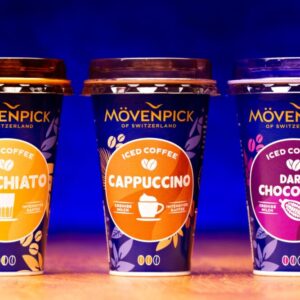It may be a new year, but the top consumer trends haven’t changed

Image credit: AdobeStock/Farknot Architect
As we enter the last couple of weeks of December – and 2024 – many consumers are already drafting their list of ‘New Year’s Resolutions’ or the ‘lifestyle changes’ they are planning to adopt. And just in time for the new year, global market research firm, Euromonitor International, has revealed its Top Global Consumer Trends 2025, with the annual report highlighting five key trends that explain the evolving behaviour of consumers.
It is not surprising that quality, health and wellness, convenience, and price remain the primary factors influencing purchasing decisions across all trends. Euromonitor’s Global Consumer Trends 2025 report illustrates how different generations are impacting business dynamics, creating new opportunities and how companies are adapting to shifting customer habits. The report notes that “in a reality shaped by the cost of living, green attributes and wellbeing expectations, these trends are at the core of consumers’ behaviour worldwide.”
Euromonitor’s Top Global Consumer Trends in 2025 are:
- Health-span Plans: Live healthier for longer has become the main goal for consumers who are on their longevity journeys. 52% of consumers believe they will be healthier in the next five years than they are now. (Within coffee and tea, functional products remain in high demand, while in RTD beverages, all-natural, organic, and no sugar/low sugar SKUs continue to expand.) EM further noted that millennials and Gen Z are leading the way in the use of devices or apps to track their fitness and health.
- Wiser Wallets: Consumers plan to put more money aside into savings as part of their consumption habits, whilst purchasing decisions are strategic and intentional. Only 18% said they often made impulse purchases in 2024. (Many consumers have reduced their out-of-home coffee and tea spend but they are not drinking less, rather, they are preparing the beverages at home.)
- Eco Logical: Sustainable options not only remain a conscious decision based on personal values but also on tangible evidence and the benefits these products deliver against customer needs. As of Q2 2024, the number of online SKUs with sustainability claims across 11 FMCG industries and 25 countries was five million. (The demand for more sustainable products – beyond coffee and tea – is being driven by millennial and Gen Z consumers and they will quickly abandon a brand or company they feel is greenwashing.)
- Filtered Focus: Customers feel they are inundated with notifications and surrounded by endless choices; they want to spend less time searching for what they need. 42% of consumers made purchases via livestreaming because product or service features were easier to understand through this channel. (My 22 November blog discusses the influence of TikTok and other social media sites on younger consumers’ purchasing decisions with regard to FMCG.)
- AI Ambivalent: Increased adoption has led to skepticism as consumers and regulators highlighted concerns about defects in the output. However, people aren’t turning their backs on this tech. Instead, they are evaluating the pros and cons. 43% of consumers considered generative AI a trustworthy source of information.
Commenting on the report, Stella Vatcheva, senior head of practice innovation at Euromonitor International, said, “Consumers are increasingly conscious when it comes to spending. They seek products and services that are reliable, providing long-term and targeted solutions. Prioritising innovation and loyalty in business strategies will be essential for addressing evolving consumer behaviour and driving growth.”
To read or download Euromonitor’s Top Global Consumer Trends 2025 report, click here.
This is the last blog of 2024, so best wishes for a happy holiday season and a joyous and healthy new year!
Vanessa L Facenda, editor, Tea & Coffee Trade Journal
Keep in touch via email: [email protected] Twitter: @TCTradeJournal or LinkedIn: Tea & Coffee Trade Journal






